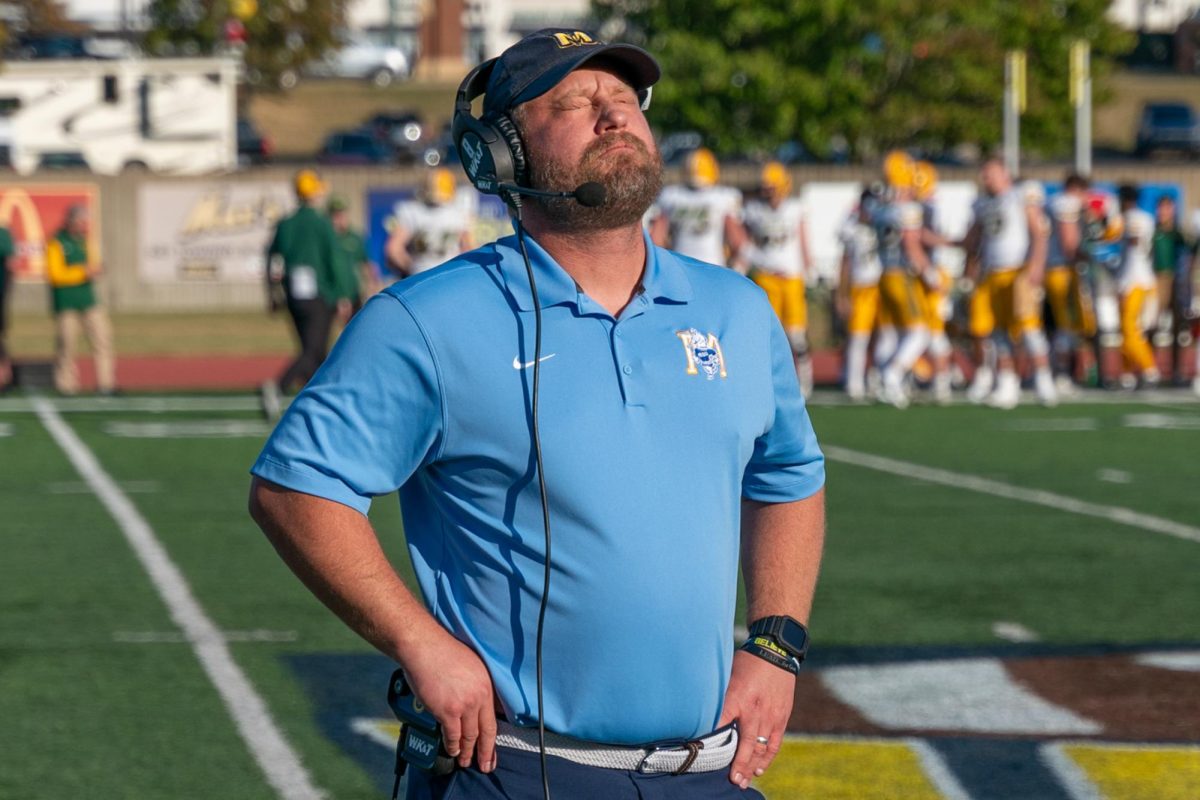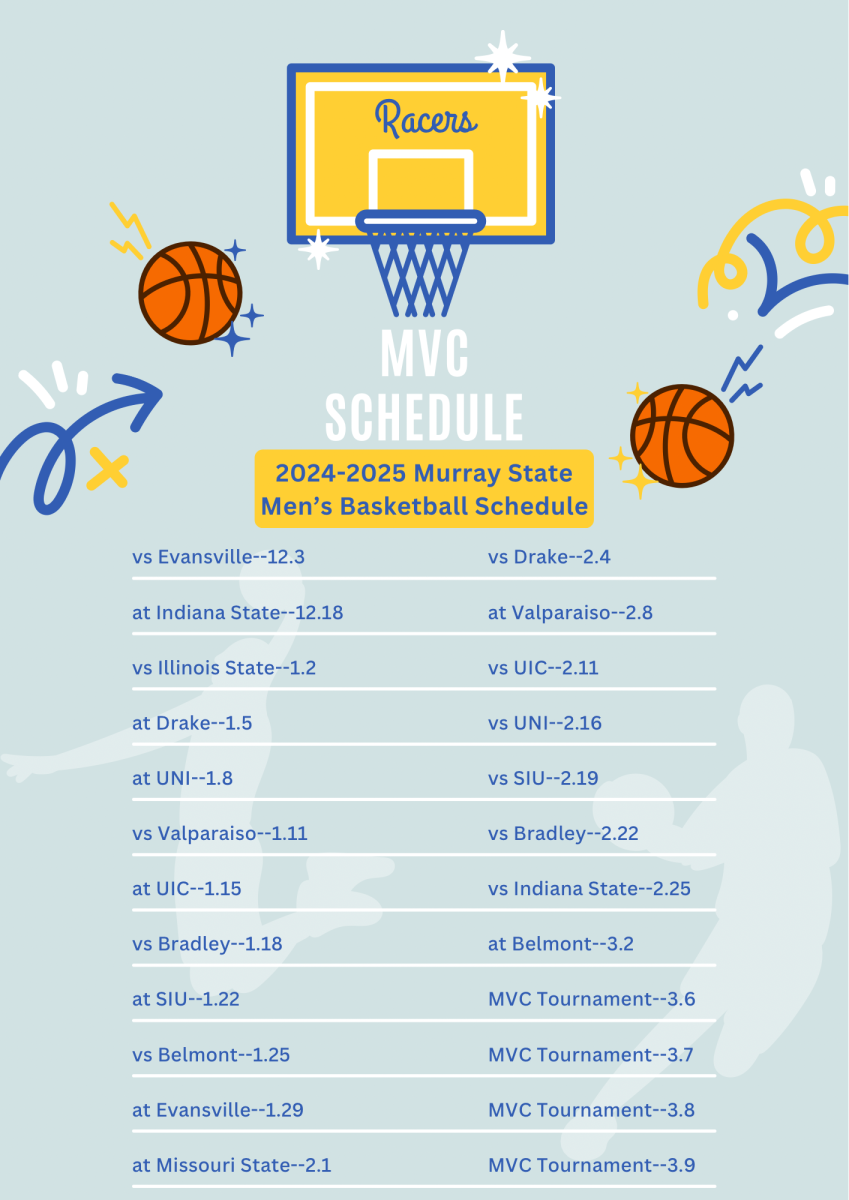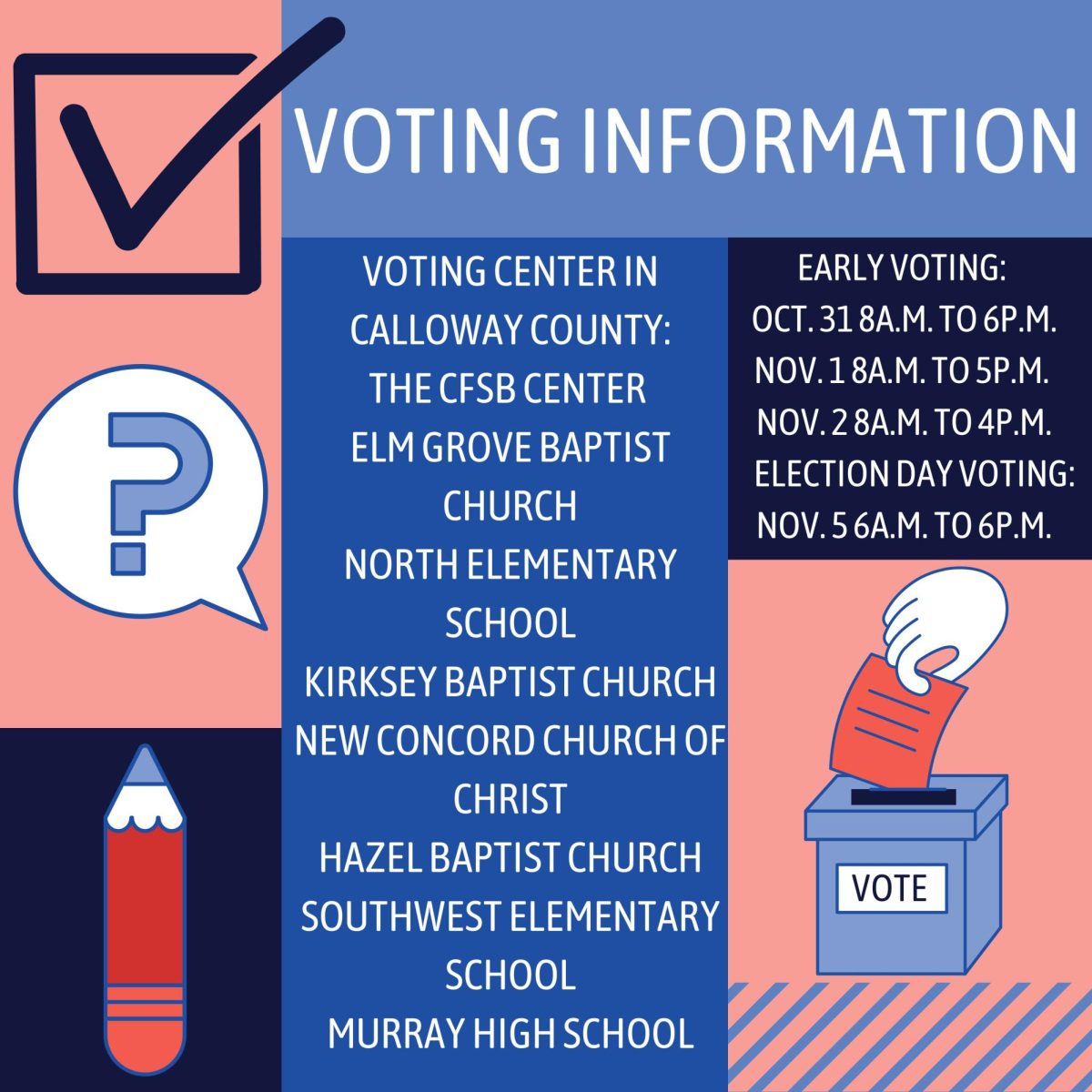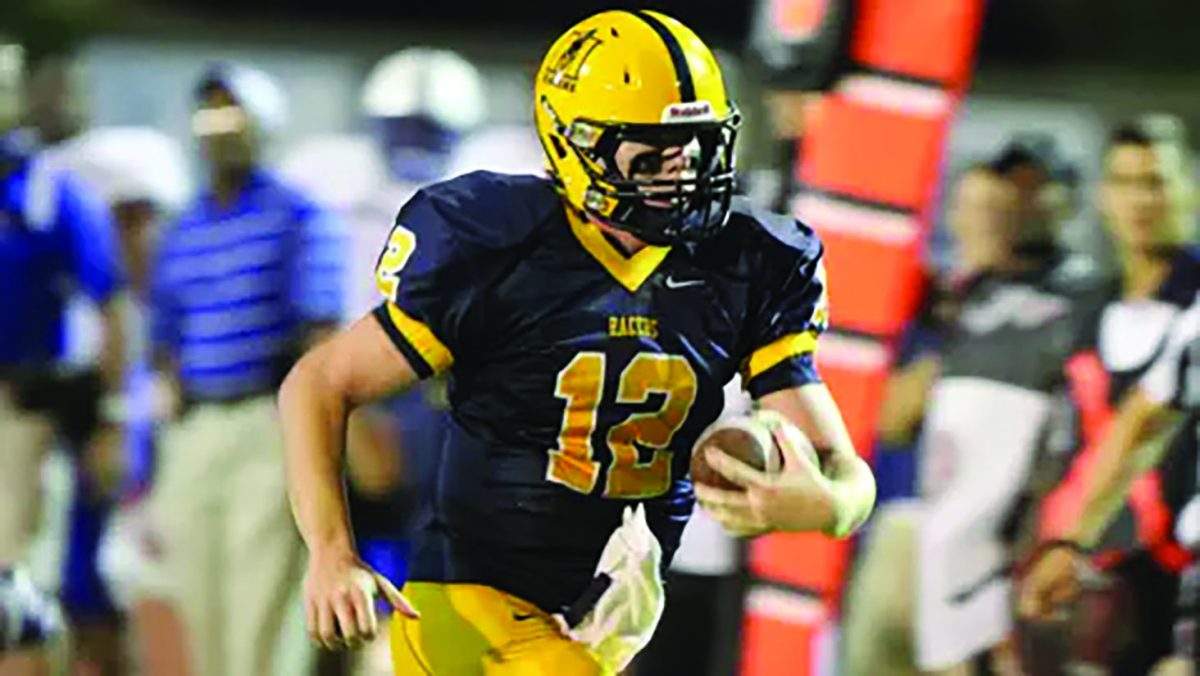Story by Blake Sandlin
Sports Editor
bsandlin1@murraystate.edu
A former Cincinnati Bengal turned Murray State Regent is heading the search for the next University athletic director.
Eric Crigler has come a long way since his football-playing days at Murray State and his short stint in the NFL. A two-time All-OVC selection in 1988 and 1989, he graduated from Murray State in 1990.
Crigler, a Louisville native, spent his childhood attending Bengals games and idolizing players like quarterback Kenny Anderson, who played less than 100 miles away from his home.
As fate would have it, Crigler would be drafted in the 10th round of the 1990 NFL Draft to none other than the Cincinnati Bengals, where he would play for nearly a year and a half. His 1990-91 Bengals team won the division championship and is the last team in Cincinnati to have won an NFL playoff game.
Crigler was released from that team shortly after, which led him to play for the Frankfort Galaxy in the NFL Europe League. He played under Jack Elway, the father of legendary Denver Broncos quarterback John Elway. When the six-foot-five-inch, 295-pound lineman realized his professional football career was over, he began plotting his post-NFL life.
“I was trying to figure out what to do with my life,” Crigler said. “I had a job at a Telecom company, kind of an entrepreneur type thing, but I was really trying to figure out how to get into investments because it was really a tough area to get into. I ended up going back to school and getting a graduate degree at Indiana University; got my MBA there. That really is what enabled me to transition to kind of a Wall Street career.”
Crigler was a mathematics major at Murray State with a minor in finance, and had always been enamored with investing. When he was drafted, his dad gave him investment magazines to help guide his financial future.
After acquiring his MBA and getting an internship at Goldman Sachs, Crigler broke into the finance world and worked for a company out of Wisconsin for more than eight years before moving to his current residence in Memphis, Tennessee.
There, Crigler started an investment firm called Skyhawk Capital in 2005. While he was living in Memphis, a friend urged Crigler to apply for a vacant seat on the Board of Regents at his alma mater. Though he said he didn’t feel overly qualified for the role, he decided to apply.
“Murray and Murray State hold a special place in my heart and gives me the opportunity to give back to the University,” Crigler said. “…So the opportunity to try and serve and give back to the University was an exciting thought to me. I didn’t really think I had a great chance or had some kind of inside track or anything like that.”
Nevertheless, Crigler found favor in the eyes of Kentucky Gov. Matt Bevin, who appointed him to the Murray State Board of Regents on Monday, Aug. 6. Crigler was thrown into the fire almost immediately, as his appointment came just days after former Murray State President Bob Davies resigned his post, and a day before the board moved to name an interim president.
Now, over two months since his appointment, Crigler has been hard at work to fill another vacant post at the University. This one, the athletic director position, has been vacant since Allen Ward resigned on July 13 to take a job at Abilene Christian University. Head Coach of Murray State women’s golf, Velvet Milkman, is currently presiding as the interim athletic director in the meantime.
Though he doesn’t directly lead the committee, Crigler was tasked with the role of liaison for the Board of Regents in the search for the new athletic director over a month ago. Instead of employing the work of a national search firm, the University opted to conduct the search internally. While Crigler noted that there are caveats in foregoing the services of a national firm, there is still a lot to be gained.
“The downside [of a search firm] is obviously money,” Crigler said. “The other thing is, what the search firm really doesn’t understand is the culture of the place they’re serving, and they have to try to get up to speed on that. The people on the committee, the people who have been involved at Murray State year after year or were student-athletes that have gone on, like myself, to have other careers, we understand kind of the culture of Murray State and what Murray State needs and the fit you can get at Murray State.”
That’s why he is part of a 12-person committee formed in order to provide varying perspectives and skill sets throughout the hiring process. That committee is comprised of former and current Murray State student-athletes, former athletic administrators, academic personnel, University donors and Murray constituents.W
“We tried to really have a diverse group of constituents so that some people can say, ‘This is really important to me’, or ‘That is really important to me,’” Crigler said. “That athletic director position has to keep a lot of balls in the air; they juggle a lot. You want to be competitive and do well on the field or court, but you have to keep an environment of compliance in terms of NCAA, grades and Title IX.”
Crigler said he has been surprised by the sheer volume of applications that the listing, which was posted Oct. 2, has yielded. He said the job posting will run until the end of November or until the position is filled. The search is also closed, which affords potential admirers the luxury of confidentiality.
“It’s a closed search, so obviously you get people who are happy in their current job, but would like to see what’s going on and so forth,” Crigler said. “So far we’ve been very happy with the response from the ad.”
While Crigler was unable to comment on individual applicants personally, he noted that Murray State’s brand and rich tradition speaks for itself.
“[Murray State’s] a Division I athletic director job in a program with scholarship football and basketball that has the tradition and brand in athletics,” Crigler said. “So there’s a scarcity factor that I maybe didn’t appreciate that much before the search started, but there’s been a lot of interest.”
This official listing requires that prospective applicants are adept in areas like fundraising and marketing, leadership, collaboration with staff, students, faculty, alumni and media, and a minimum of five years experience in athletic administration.
Crigler identified several defining qualities that a prospective athletic director should have.
“You’re in charge of a large budget within the University, you have to manage coaches, you’re working on the culture and have processes and controls for the compliance aspect and now the position has really evolved to where the athletic director tends to be one of the faces of the University,” Crigler said. “So they have to be creative in the revenue department,
they have to be involved in fundraising and development and they have to engage the community on behalf of Murray State. It’s tough to find someone that’s good in all those areas, so really what you have to do is have a solid team. Thankfully, we have some solid folks over there.”
Before the transition can occur, the committee must find that ideal candidate. Since the University is not utilizing the services of a national firm, their reach is vastly limited.
However, Crigler said Murray State athletics has been advantaged to have prestigious coaches call the school home in the past, and the school is using that deep network of individuals to source the perfect candidate.
“Reaching out to those people, using our networks to go out and source and find people,” Crigler said. “Some applications are just people that saw the posting, and they may very well be the very best people for the job, but the committee isn’t just sitting on our laurels and hoping that people send things in; the committee has been actively recruiting. This period of time is really about getting as many great candidates as we can in the pool, and we’ll start dwindling that down once we get that.”
No matter the direction the search committee ultimately takes with the hiring of Murray State’s next athletic director, Crigler’s credentials as a former athlete and financial savant should provide invaluable insight for the committee and the Board of Regents during a period of critical turnover and depleted budgets.



































































































